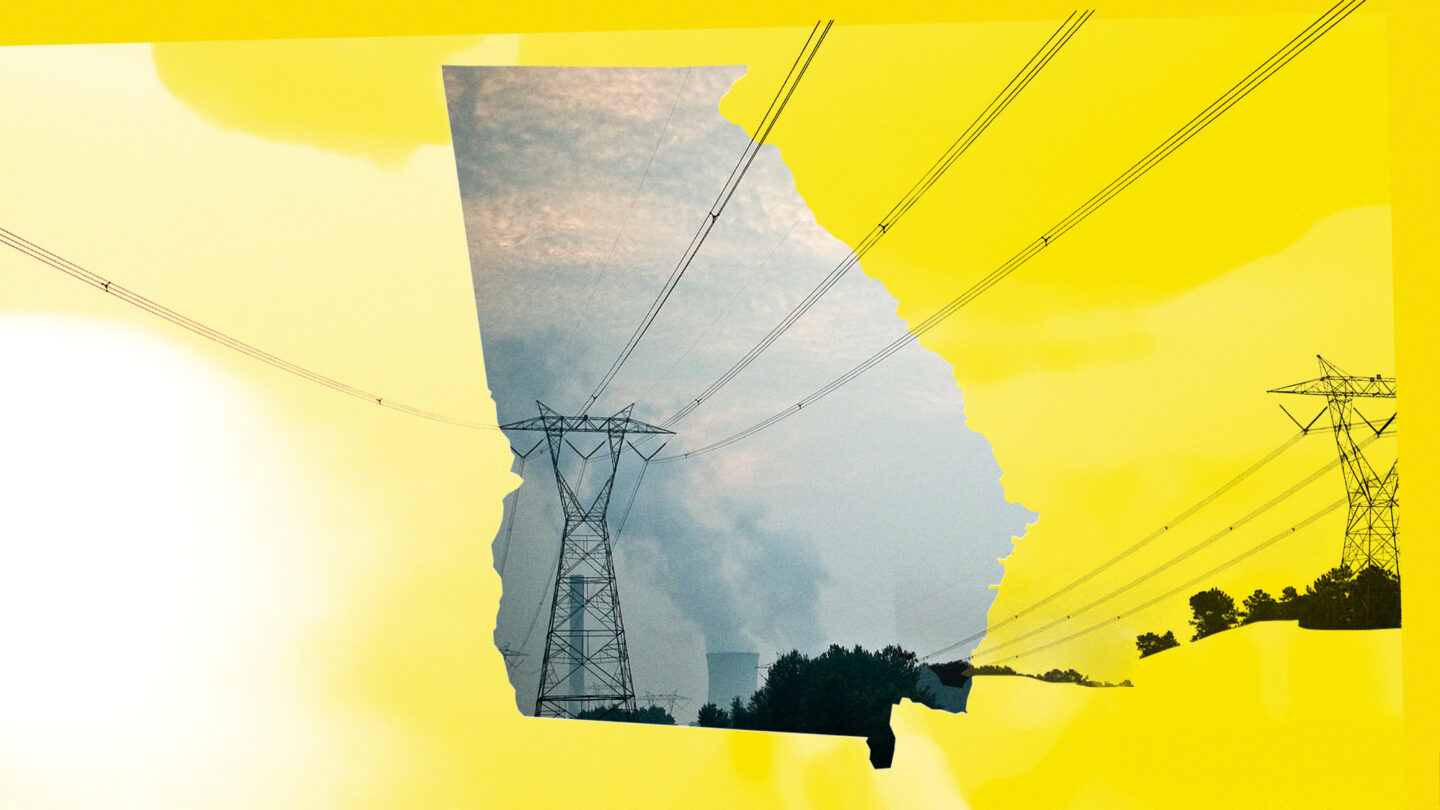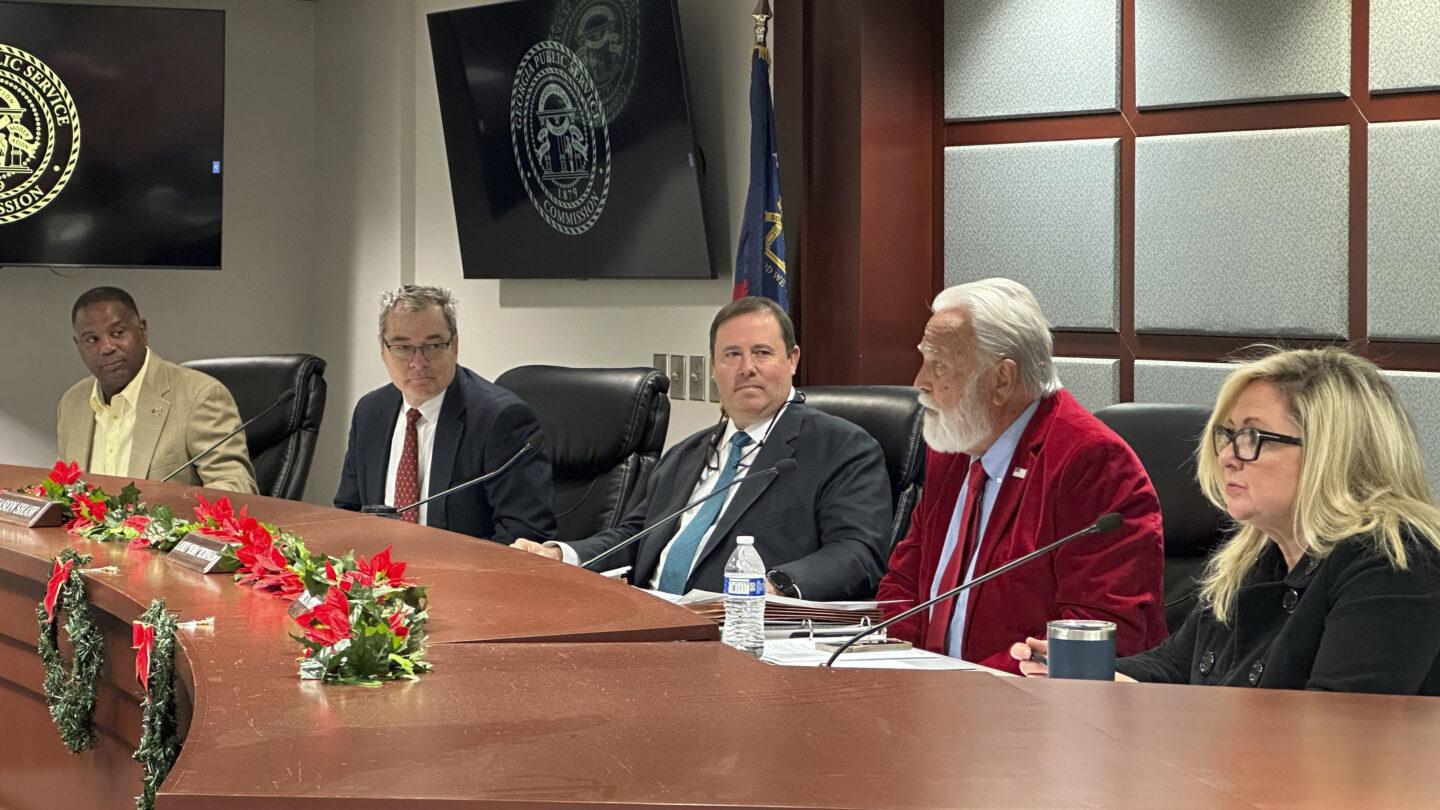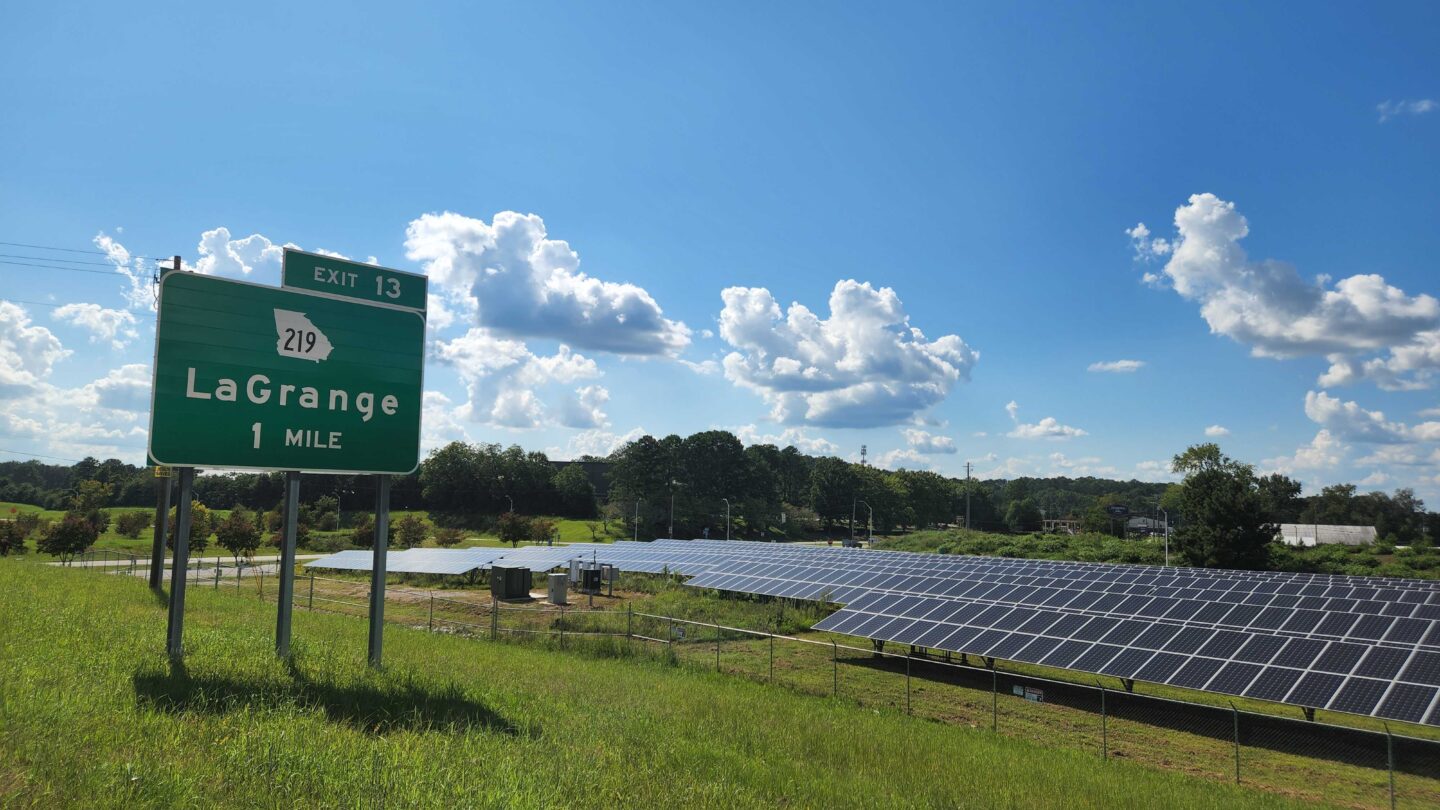How energy and electricity policy works in Georgia

This project aims to demystify the Georgia Public Service Commission, the small but powerful elected board that makes critical decisions about energy and electricity — and has been mired in a lawsuit over voting rights. To ensure our journalism reaches and involves residents who face major barriers to accessing accurate, consistent information, we want to hear from you and stay connected. Take our survey and sign up for email updates below. Grist is also creating printable resources and launching a paid journalism training program around this topic.
This coverage is made possible through a partnership with WABE and Grist, a nonprofit environmental media organization.
Georgia Public Service Commission
Under Georgia law, Public Service Commissioners are elected and “shall serve for terms of office of six years and until the election and qualification of their respective successors. This is why commissioners continue to serve despite the canceled 2022 elections: their successors have not been elected.
District 1 – Jason Shaw
Appointed: 2019 | Elected: 2020
Serves through: December 31, 2026
District 3 – Fitz Johnson
Appointed: 2021 | Elected: never; 2022 special election canceled due to lawsuit
Serves through: the canceled 2022 special election was for the remainder of his predecessor’s term, which was due to end December 31, 2024
District 5 – Tricia Pridemore
Appointed: 2018 | Elected: 2018
Serves through: December 31, 2024
District 2 – Tim Echols
Elected: 2010 | Re-elected: 2016
Elected to serve through: December 31, 2022; election canceled due to lawsuit
District 4 – Lauren “Bubba” McDonald
Appointed: 1998 | Elected: 1998, 2008 | Re-elected: 2014, 2020 (lost seat for one term in 2002)
Serves through: December 31, 2026
Timeline
Take the Survey
A glossary of terms
- Integrated Resource Plan (IRP): An electric provider’s long-range plan for generating and delivering electricity. In Georgia, it’s a 20-year plan updated every three years with input from the PSC and stakeholders, which are called intervenors.
- Rate Case: The process of setting the rates an electric utility charges customers for the power they use. In Georgia, this happens every three years following the IRP.
- Investor-owned utility (IOU): A private company providing electricity to customers and owned by shareholders. These are the electric utilities regulated by PSCs. Nearly two-thirds of electric customers in the U.S. get their power from an investor-owned utility.
Meet Emily Jones
Climate Reporter
I cover climate change, the environment, and environmental justice as part of a partnership between WABE and Grist, a nonprofit, independent media organization dedicated to telling stories of climate solutions and a just future. Climate change is an overwhelming global threat that can be difficult to wrap your head around, so I try to break down for Georgians how it’s affecting their lives and what they can do about it.
Before joining WABE in 2021, I hosted “Morning Edition” and covered the Georgia coast for Georgia Public Broadcasting. I got started as a reporter at my college radio station in Providence, where I also worked as a DJ and interned for the local public radio station. I have a masters in broadcast journalism from Columbia and have been honored by the Atlanta Press Club and the Georgia Association of Broadcasters.










